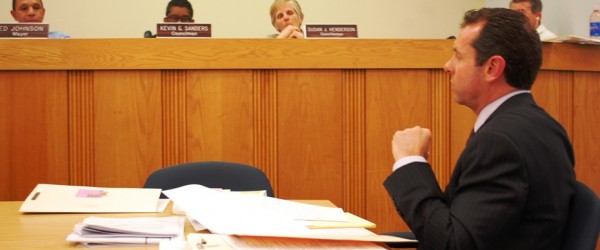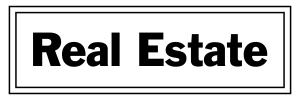Attorney’s ruling challenged
Proponents of ward system and direct election of Mayor want referendum
Proponents of a change of government to a ward system with direct election of the mayor have filed suit to overturn the ruling of city attorney Frederick Raffetto [above] that their petition to force a referendum on the issue is invalid.
The appeal was filed by attorney Christopher Iavarone of Toms River, according to political activist Duanne Small, who led the petition drive. Raffetto said last night that the city has yet to be served with the appeal.
The new form of government Small proposed in his petition would split the city into six wards, each with its own council member, as well as three more council members elected at large. The mayor would be directly elected, and would run the city.
Although Small’s petition contained the required 1610 valid signatures, representing one-quarter of the city’s registered voters, Raffetto rejected the petition on two grounds: It did not specify whether the new form of government would hold partisan or non-partisan elections, and it called for concurrent terms of office for the council members while Raffetto claims the law only allows staggered terms.
City voters currently elect all five council members every four years. The mayor is selected by the council, and presides over the meetings. The city manager is the city’s chief executive officer. Candidates run in a non-partisan election in May, with all candidates in one column on the ballot with no party affiliation. Small’s proposal would move the elections to November.
Meanwhile, at last week’s city council meeting, the governing body unanimously introduced an ordinance to establish an elected commission to review the city’s form of government — with the power to submit changes to voters that would scuttle the current system believed to date back to the 1920s.
The council had planned a public hearing on May 2, after which it could approve the measure and ask voters in November whether to establish a charter study commission, as well as elect its five members. The commission could then submit changes to the city’s form of government for voter approval, or suggest no change.
Raffetto has previously told the Sun that if the council puts a charter study commission on the November ballot, it would stop any new direct petitions to ask voters to approve a specific new government form — the method Small attempted.
However, Small — a vocal opponent of the current council — filed his petition before the council sought to establish a charter study commission. The judge hearing Small’s appeal will have to sort out which measure goes to the voters: Small’s petition directly changing the form of government or the Council’s move to establish a charter study commission.
Click here to read a previous Sun story on the issue.















